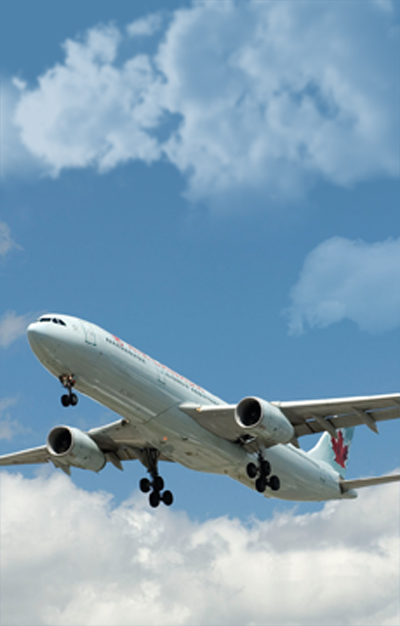
Features
Operations
At The Gate: Industry analysts weigh in
What a difference a year makes. Heading into 2009, the general consensus was that we were entering into a serious depression, as opposed to a recession
January 18, 2010 By Brian Dunn
What a difference a year makes. Heading into 2009, the general consensus was that we were entering into a serious depression, as opposed to a recession, and some airlines were fighting for their survival. As the industry takes off in 2010, the skies look a little brighter and there is cause for optimism.
 |
|
“There are glimmers of hope. The psychology is much better today than a year ago,” according to Wings contributor Frederick K. Larkin. Fuel prices have stabilized, although nobody can predict where they’ll be, going forward. And Canadian carriers are benefiting from a stronger loonie versus the greenback because leasing and component costs, and landing fees and fuel costs at major international airports – among other variables – are usually quoted in U.S. dollars.
In addition, interest rates are relatively low and Air Transat, WestJet and Air Canada have all raised money, while monthly stats from the major carriers indicate load factors of around 80 per cent. “People are still travelling,” Larkin says. “And it’s not all corporate travel which has been severely curtailed.”
The dominant factor over the next 12 months is the extent to which traffic recovers in relation to the economic recovery, suggests research analyst Fadi Chamoun at UBS Securities in Toronto.
“There are encouraging signs that the number of seats being added is very low, maybe two per cent in the domestic market. Therefore the supply/demand ratio is becoming more balanced, which should allow airlines to increase their prices as demand improves, thereby improving their bottom line.”
In addition to losing more market share to WestJet, Air Canada needs to address some of its structural costs, Chamoun adds. He says the business travel market is more critical for Air Canada than it is for WestJet and it remains weak, but is slowly recovering.
“But I don’t see any meaningful improvement until 2011.”
The leisure market continues to perform well, stimulated by lower fares and the strong dollar, which will allow airlines to increase their prices gradually, says Chamoun.
“The major carriers are able to offer attractive packages, because they can get great deals on hotels.”
While Air Canada may still be losing market share in Canada, it has several things going for it, according to airline analyst Rick Erickson, president of RP Erickson & Associates of Calgary.
“They’ve bought 21 months of labour peace, they’ve refinanced and they’re making one new international route announcement after another, including Calgary-Tokyo. That’s a huge change from the (former Air Canada CEO) Montie Brewer era, when Vancouver was considered the airline’s international gateway.
“Calin Rovinescu (Brewer’s replacement) recognizes that Calgary is the second most important business market after Toronto, and Air Canada is looking for any new yield opportunities.”
Air Canada is also refurbishing its fleet with Triple 7s, while upgrading both the front and back cabins of its aircraft, Erickson points out.
“I’d hate to be an American carrier trying to compete with Air Canada on international routes as a result.”
With the first phase of its new $50-million terminal expected to be completed by the end of January, City Centre Terminal Corp. (CCTC) is accepting inquiries from other carriers interested in check-in counters and gate space at its Toronto City Centre Airport, recently renamed Billy Bishop Toronto City Airport. The first phase will include five bridged aircraft gates, customs and immigration facilities and a mix of retail stores, food services, duty-free shops, among other services. Five more gates will be added during the second phase, which is expected to be completed next fall, at which point other carriers will be offered space at a second passenger lounge.
Some analysts see this as a peace offering from Porter Airlines, which has been locked in a legal battle with Jazz Air since it was evicted from TCCA in 2006 by Porter, or, more specifically, by CCTC, whose CEO is Porter founder Robert Deluce.
Porter has an incentive to accept other carriers in order to collect landing fees and charge for gate space to help pay for its new terminal, suggests Larkin. And Deluce will still be calling the shots, as CCTC owns the terminal.
Another analyst, who requested anonymity, said Porter will want to be seen as fair, as it expands further into the U.S. market, and will still be ahead of any new competition with a three-year lead building up a loyal customer base.
Brian Dunn is a Wings writer and columnist.